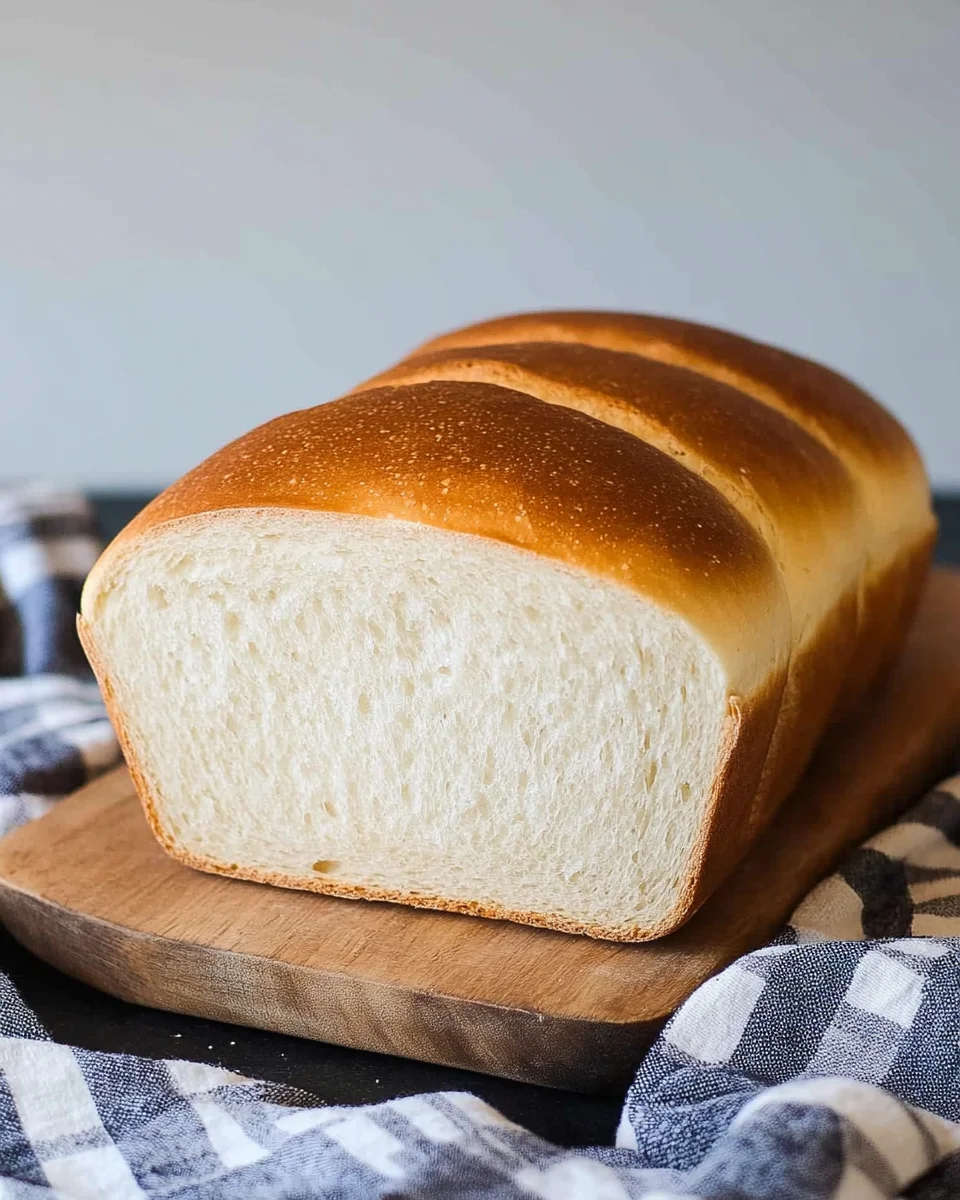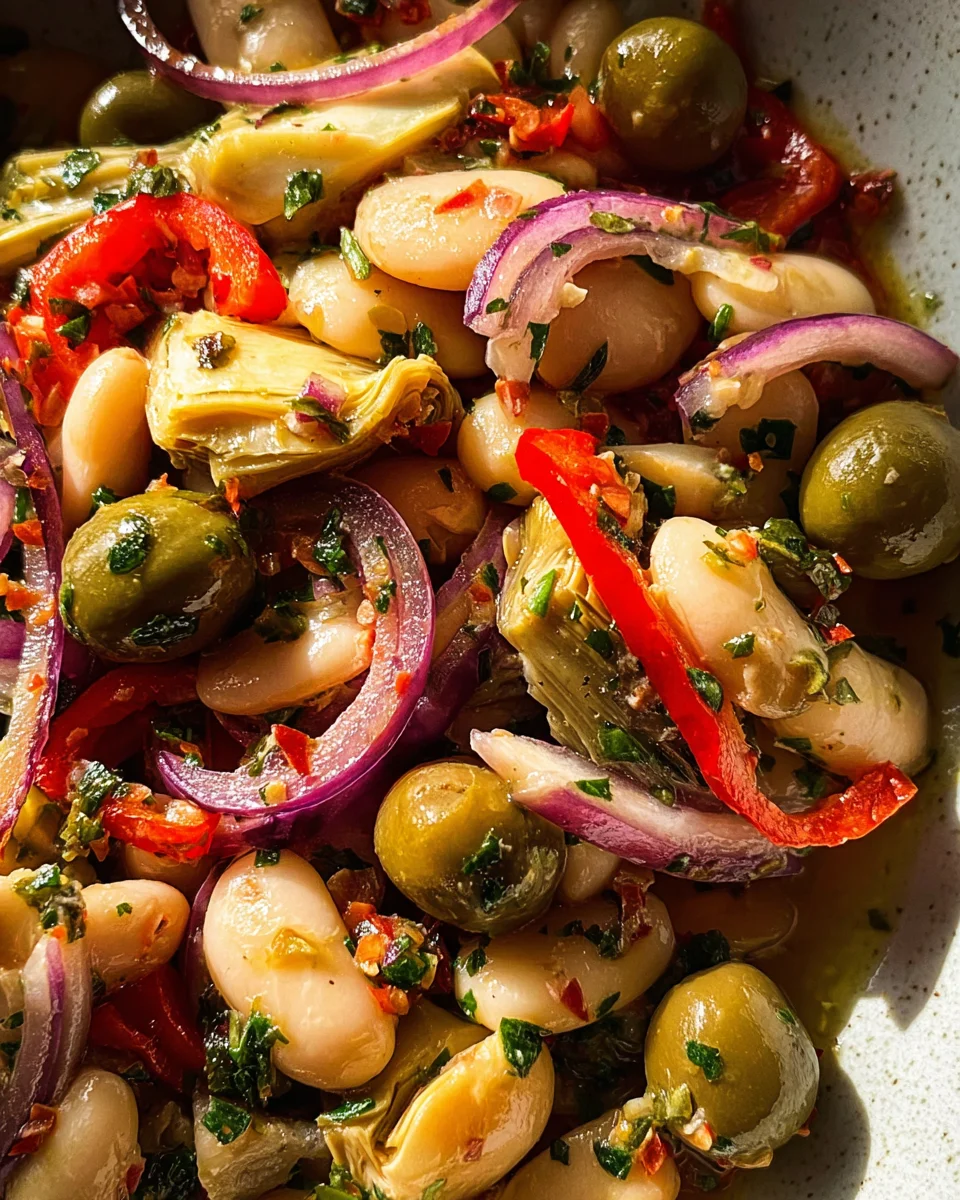Soft Sourdough Sandwich Bread
This Soft Sourdough Sandwich Bread is a delightful addition to any meal. With its fluffy texture and soft crust, it serves as the ideal base for sandwiches, avocado toast, or even a sweet French toast breakfast. The best part? This recipe is straightforward and requires minimal effort, making it perfect for busy schedules. Whether you’re hosting brunch or just looking for a comforting loaf to have at home, this bread is sure to impress.
Why You’ll Love This Recipe
- Fluffy Texture: Enjoy a light and airy loaf that elevates your sandwiches and toast.
- Versatile Uses: Perfect for everything from hearty sandwiches to elegant French toast.
- Easy Process: Minimal hands-on time makes this recipe perfect for beginners and experienced bakers alike.
- Flexible Timing: Prepare the dough around your schedule; it works with various timelines.
- Delicious Flavor: The sourdough fermentation process adds depth to the flavor profile.
Tools and Preparation
Before you start baking your soft sourdough sandwich bread, gather the essential tools. Having the right equipment can make your experience smoother and more enjoyable.
Grab This Chef Knife Now - Almost Gone!
- Stays Razor-Sharp: Ice-hardened blade keeps its edge longer than ordinary knives
- Superior Grip Control: Unique finger hole design gives you perfect balance and safety
- Built to Last a Lifetime: Premium stainless steel blade with elegant beech wood handle
Customer Reviews ★★★★★
Essential Tools and Equipment
- Stand mixer
- Mixing bowls
- Measuring cups
- Kitchen scale (optional)
- Loaf pans
- Dough scraper
Importance of Each Tool
- Stand mixer: Saves time and effort by kneading the dough efficiently.
- Mixing bowls: Necessary for combining ingredients without mess.
- Measuring cups: Ensure accurate measurements for consistent results.
Ingredients
For Pre-ferment
- 2 cups active sourdough starter
- 2 cups water, milk, or buttermilk (warm if your house is cool)
- 3 cups all-purpose or bread flour
For the Dough
- 1/4 cup fat (butter, oil, melted coconut oil, or beef tallow; warm if house is cool)
- 1/2 cup sweetener (honey or sugar)
- 4 teaspoons salt
- 3 cups milk or buttermilk (any kind; warm if house is cool)
- 9–11 cups all-purpose or bread flour
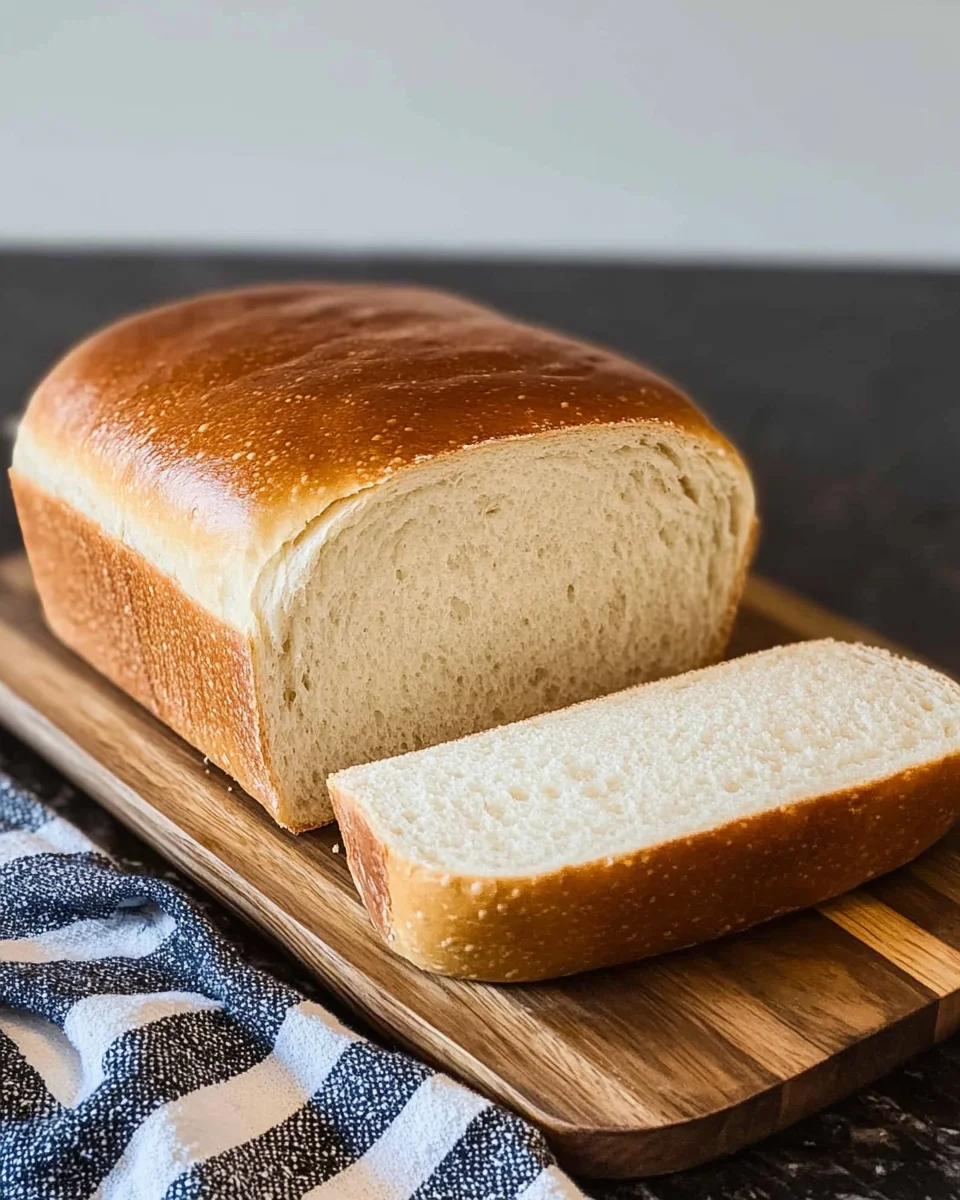
How to Make Soft Sourdough Sandwich Bread
Step 1: Feed Sourdough Starter
Feed your sourdough starter by combining no more than 1/2 cup of starter with 2 cups flour and about 1 1/3 cups warm water. Let the starter sit at room temperature until it becomes active and rises to the top. Once active, proceed to the next step.
Step 2: Combine Pre-ferment Ingredients
In the bowl of a stand mixer, combine 2 cups milk or buttermilk, 2 cups active sourdough starter, and 3 cups flour. Mix on low speed with the dough hook attachment for about 1 minute. Cover and allow the mixture to ferment overnight at room temperature.
Step 3: Mix the Dough
The next morning, add the fat, sweetener, salt, and milk to the pre-ferment mixture. Mix on low speed until partially combined. Add 5 cups of flour and mix on medium speed for 5–10 minutes to develop gluten. Gradually add 4–6 more cups of flour until the dough pulls away from the sides of the bowl and is only slightly sticky. Continue mixing for another 2–3 minutes.
Step 4: First Rise
Transfer the dough to a large oiled mixing bowl. Cover with a towel or plastic wrap and let it rise in a warm spot for 2–3 hours, or until it doubles in size. If it’s cold, this may take longer.
Step 5: Shape the Loaves
Once the dough has risen, punch it down and transfer it to a lightly floured surface. Divide into four equal pieces. Flatten each piece into a rectangle; fold corners inward to form a triangle. Roll away from you to form a loaf, tucking edges under as needed. Place loaves in greased loaf pans.
Step 6: Second Rise
Cover loaves and let them rise until they’re just above the edges of pans. This usually takes 2–3 hours; monitor closely to avoid over-proofing.
Step 7: Bake
Preheat your oven to 375°F (190°C). Using a bread lame or razor blade, slash tops of loaves for expansion. Bake for about 30 minutes or until internal temperature reaches 190°F (88°C).
Step 8: Cool and Enjoy
Remove loaves from pans and place on cooling rack. Brush tops with butter to keep crust soft. Allow bread to cool completely before slicing. Serve with butter and jam or use for sandwiches, toast, and more.
Storage
Store in a plastic bag on the counter or in refrigerator for up to one week. Freeze for up to three months; slice before freezing for convenience!
How to Serve Soft Sourdough Sandwich Bread
Soft sourdough sandwich bread is incredibly versatile and can elevate your meals in many ways. Whether you are preparing a quick breakfast, a delightful lunch, or a casual dinner, this bread can be the perfect foundation.
Toast with Toppings
- Avocado Toast: Top slices of soft sourdough with smashed avocado, a sprinkle of salt, and chili flakes for a nutritious morning treat.
- Nut Butter Delight: Spread your favorite nut butter on toasted slices for a satisfying snack or breakfast option.
- Cream Cheese and Smoked Salmon: Layer cream cheese and smoked salmon on toast for an elegant brunch dish.
Sandwiches
- Classic BLT: Use crispy bacon, fresh lettuce, and juicy tomatoes for a timeless sandwich combination.
- Turkey Club: Stack turkey, cheese, lettuce, and mayo between two slices for a hearty meal.
- Grilled Cheese: Melt your favorite cheeses between two slices of soft sourdough for that perfect gooey goodness.
French Toast
- Cinnamon French Toast: Dip slices in a mixture of eggs, milk, and cinnamon before frying them until golden brown for a sweet breakfast treat.
- Savory French Toast: Use herbs and spices in your egg mixture for a savory twist that pairs well with cheese and ham.
How to Perfect Soft Sourdough Sandwich Bread
To achieve the ideal soft sourdough sandwich bread, keep these tips in mind. They will help ensure that your loaves turn out fluffy and delicious every time.
- Bold Starter Activity: Ensure your sourdough starter is active and bubbly before using it. This guarantees better rise and flavor.
- Bold Warm Liquids: Use warm liquids when mixing the dough, especially in cooler environments. It helps yeast activation for proper fermentation.
- Bold Gluten Development: Mix the dough thoroughly to develop gluten. A strong gluten structure leads to the fluffy texture of the bread.
- Bold Monitor Rising Time: Keep an eye on rising times. Depending on temperature, the dough may need more or less time to double in size.
- Bold Proper Shaping: Shape the loaves gently to avoid deflating them. This maintains the air pockets that contribute to softness.
- Bold Cool Completely Before Slicing: Let the bread cool completely before slicing. This helps set the crumb structure for better texture.
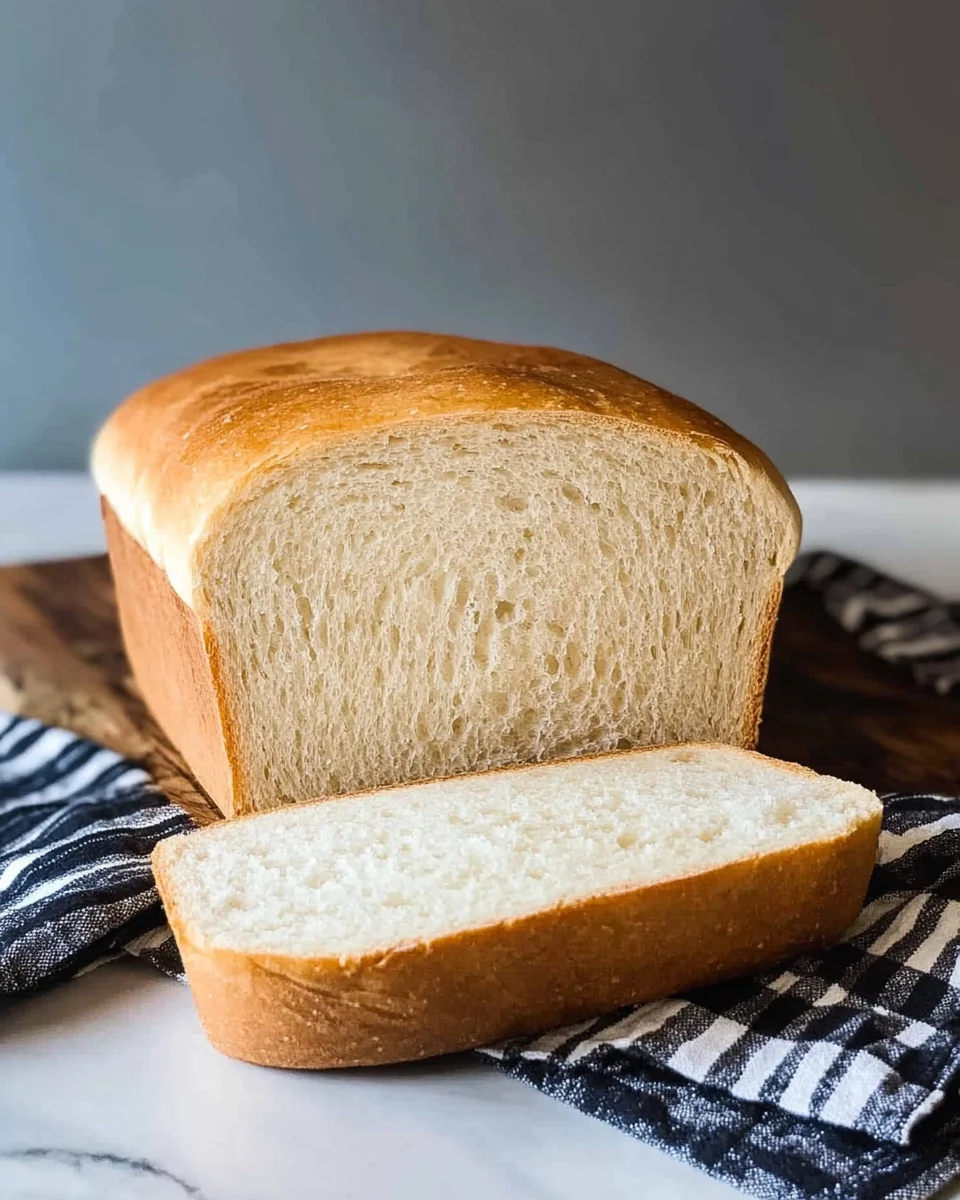
Best Side Dishes for Soft Sourdough Sandwich Bread
Pairing side dishes with your soft sourdough sandwich bread can enhance your meal experience. Here are some excellent options to consider:
- Garden Salad: A fresh mix of greens topped with cherry tomatoes and cucumber provides a crisp contrast to the soft bread.
- Roasted Vegetables: Seasonal veggies roasted until caramelized add flavor and nutrition alongside your sandwiches.
- Soup of Your Choice: A warm bowl of tomato soup or butternut squash soup complements grilled cheese perfectly.
- Potato Chips: Crunchy potato chips offer a delightful texture variation when served with sandwiches.
- Pickles or Olives: Tangy pickles or olives add an exciting flavor balance that pairs well with rich sandwiches.
- Fruit Salad: A refreshing fruit salad brings sweetness and brightness to your meal alongside savory items.
Common Mistakes to Avoid
To ensure your soft sourdough sandwich bread turns out perfectly, avoid these common pitfalls.
- Skipping the Starter Feeding: Not feeding your sourdough starter properly can lead to a weak rise. Always feed it in advance to ensure it’s active before you start baking.
- Incorrect Liquid Temperature: Using cold liquids can slow down fermentation. Make sure your milk or water is warm, especially in cooler weather, to encourage a good rise.
- Not Measuring Flour Accurately: Adding too much flour can result in dense bread. Use the scoop and level method for precise measurements.
- Rushing the Rising Process: Allowing insufficient time for the dough to rise can lead to flat loaves. Be patient and let the dough double in size for the best results.
- Over-proofing the Dough: Leaving the dough to rise too long can cause it to collapse. Keep an eye on it and shape your loaves once they’ve just about doubled in size.
Refrigerator Storage
- Store soft sourdough sandwich bread in a plastic bag in the refrigerator for up to 1 week to maintain freshness.
- Ensure the bag is sealed tightly to prevent the bread from drying out.
Freezing Soft Sourdough Sandwich Bread
- Slice the bread before freezing for easier use later on.
- Wrap each loaf or individual slices tightly in plastic wrap or aluminum foil, then place them in a freezer-safe bag.
- This bread can be frozen for up to 3 months without losing quality.
Reheating Soft Sourdough Sandwich Bread
- Oven: Preheat your oven to 350°F (175°C) and wrap the bread in foil. Heat for about 10-15 minutes until warmed through.
- Microwave: Place a slice on a microwave-safe plate and cover with a damp paper towel. Heat on medium power for 10-15 seconds.
- Stovetop: Toast slices in a skillet over medium heat until golden brown, perfect for sandwiches or breakfast.
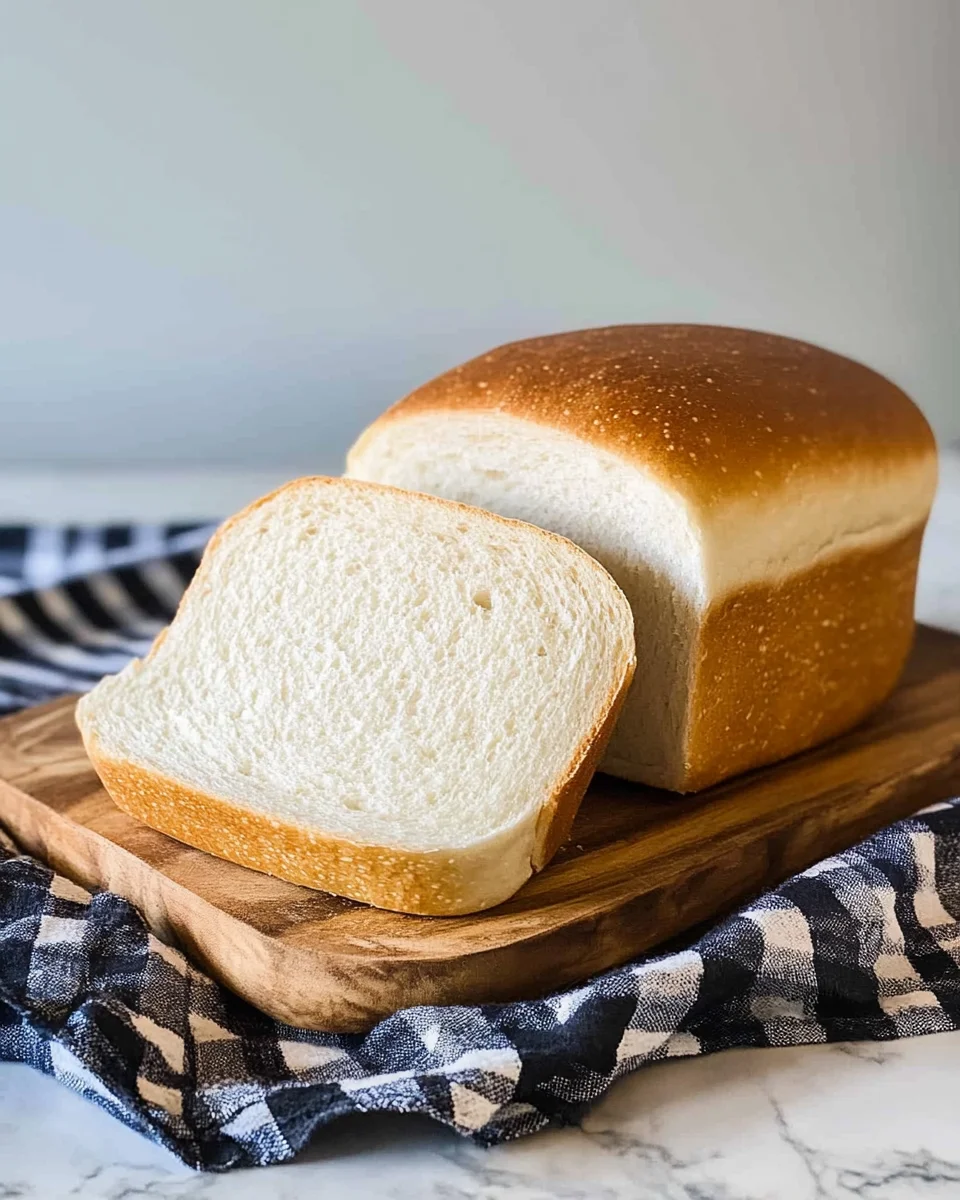
Frequently Asked Questions
What makes soft sourdough sandwich bread different?
Soft sourdough sandwich bread is lighter and fluffier than traditional sourdough due to its special fermentation process and ingredient ratios.
How long does it take to make soft sourdough sandwich bread?
The total process takes about 24 hours, but only 10 minutes of active effort is needed. The rest is fermentation and rising time.
Can I use whole wheat flour instead of all-purpose?
Yes, you can substitute whole wheat flour, but it may alter the texture slightly. A mix of both flours often yields great results.
How should I store soft sourdough sandwich bread?
Store it in a plastic bag at room temperature or refrigerate it for up to one week. For longer storage, freeze it sliced.
Can I customize this soft sourdough sandwich bread recipe?
Absolutely! You can add herbs, spices, or seeds to change up the flavor. Experiment with different fats or sweeteners as well!
Final Thoughts
This soft sourdough sandwich bread is not only delicious but also versatile enough for various meals. It’s ideal for sandwiches, toast, or simply with butter and jam. Feel free to customize it with your favorite add-ins!

Soft Sourdough Sandwich Bread
- Prep Time: 10 minutes
- Cook Time: 30 minutes
- Total Time: 40 minutes
- Yield: About 16 servings 1x
- Category: Bread
- Method: Baking
- Cuisine: American
Description
Indulge in the delightful experience of making Soft Sourdough Sandwich Bread, a recipe that balances simplicity and flavor perfectly. This fluffy loaf boasts a soft crust, making it an ideal companion for sandwiches, toast, or even a sweet French toast breakfast. With minimal hands-on effort, you can create this comforting bread that impresses at brunch gatherings or elevates your everyday meals. The sourdough fermentation process adds a rich depth to its taste, ensuring each slice is flavorful and satisfying.
Ingredients
- 2 cups active sourdough starter
- 5 cups milk or buttermilk
- 9–11 cups all-purpose flour
- 1/4 cup fat (butter or oil)
- 1/2 cup sweetener (honey or sugar)
- 4 teaspoons salt
Instructions
- Feed your sourdough starter and let it become active.
- In a stand mixer, combine 2 cups warm milk, sourdough starter, and 3 cups flour; mix and ferment overnight.
- The next day, add fat, sweetener, salt, and remaining flour; mix until dough forms.
- Let the dough rise in a warm spot until doubled in size (about 2–3 hours).
- Shape into loaves and let them rise again until just above pan edges.
- Preheat oven to 375°F (190°C). Bake loaves for about 30 minutes until golden.
Nutrition
- Serving Size: 1 slice (40g)
- Calories: 110
- Sugar: 1g
- Sodium: 160mg
- Fat: 3g
- Saturated Fat: 1g
- Unsaturated Fat: 2g
- Trans Fat: 0g
- Carbohydrates: 20g
- Fiber: 1g
- Protein: 4g
- Cholesterol: 5mg

